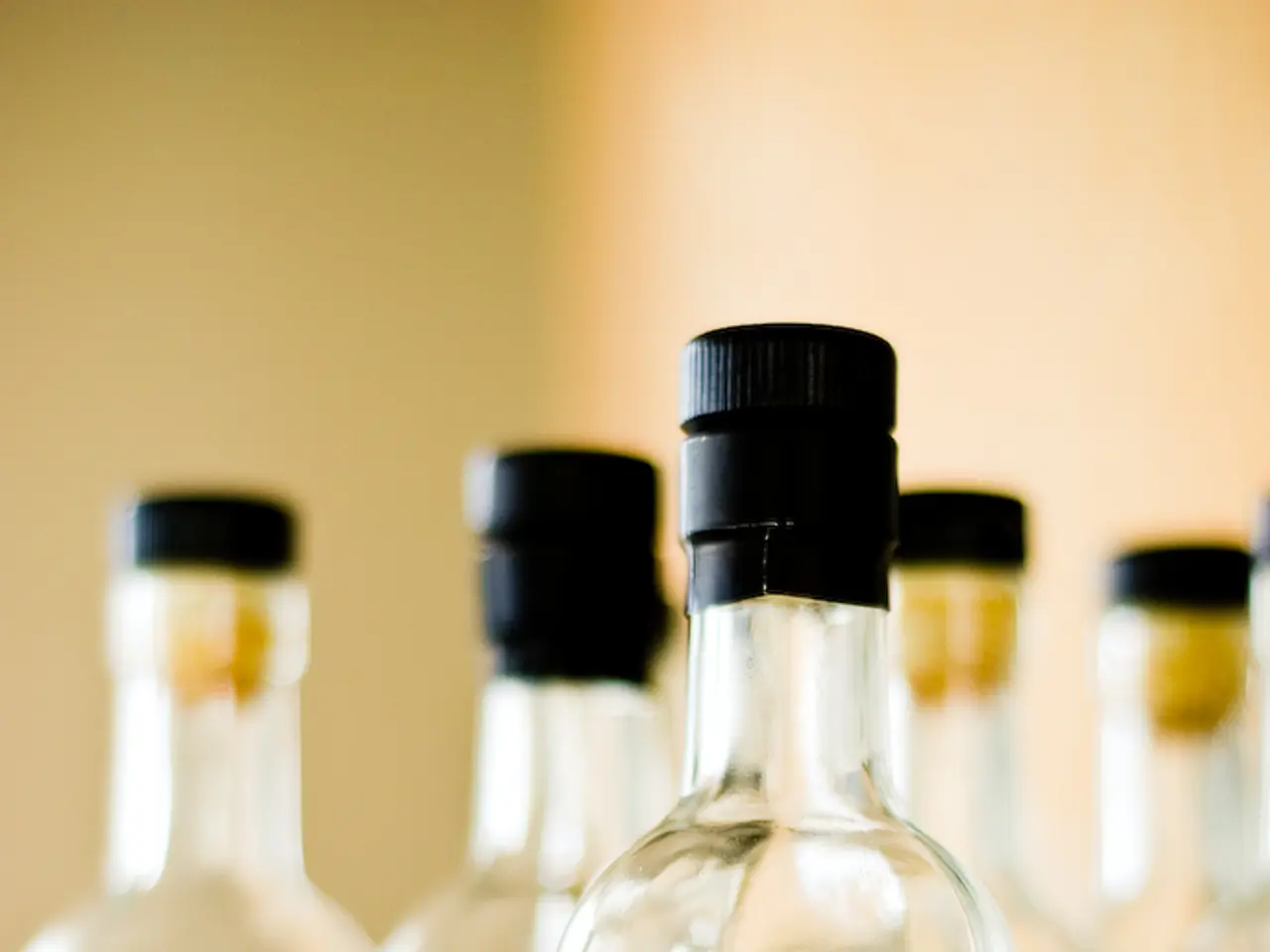The Science of Hangovers: Uncovering the Mystery Behind Alcohol- triggered Headaches
================================================================
Hangovers, scientifically known as "veisalgia", have been a part of our lives for at least 10 million years, dating back to when our ancestors may have consumed fallen fruits with alcohol content, offering caloric benefits but also causing sickness [1]. Today, we know more about the science behind hangovers and the effective strategies to prevent or alleviate them.
Alcohol quickly passes from the stomach to the intestines and into the bloodstream upon ingestion, causing disruptions in various organs, including the brain and liver [2]. The liver is responsible for breaking down alcohol into acetaldehyde and then acetate, both toxic compounds for our bodies. Alcohol also disrupts vasopressin production, an antidiuretic hormone regulating kidney activity, leading to dehydration [2].
Hydration with Electrolytes
To combat dehydration, starting hydration before your first drink with electrolyte-containing fluids helps maintain fluid balance and reduce hangover severity. Continuing to hydrate after drinking also shortens hangover duration by 25-35% [1][2][3]. Electrolytes include sodium, potassium, and magnesium.
N-Acetyl Cysteine (NAC)
Taking N-Acetyl Cysteine (NAC) before drinking supports glutathione production, a strong antioxidant that helps the liver detoxify alcohol metabolites, leading to less severe hangovers [1].
B Vitamins & Vitamin C
Alcohol rapidly depletes B vitamins and vitamin C, which are important for energy and cellular repair. Supplementing these before and after drinking helps mitigate hangover symptoms [1][3].
Food Intake
Consuming a balanced meal before drinking slows alcohol absorption and protects the gut lining, reducing hangover severity [1][2][3].
Stress Reduction with Adaptogens
Ashwagandha may help regulate cortisol (stress hormone) elevated by alcohol, supporting nervous system recovery and potentially lessening hangover symptoms [1].
Mindful Drinking Practices
Setting drinking limits, alternating alcoholic beverages with water, choosing quality over quantity, and tracking consumption can prevent excessive intake and reduce hangovers [2]. Quality sleep post-drinking is crucial for hangover recovery and can reduce symptom duration [2].
Additional Home Remedies
Additional home remedies like cold compresses, dim lighting, aromatherapy (peppermint or lavender oils), and pressure point application may help alleviate headache symptoms but are more supportive than preventive [3].
In Summary
Combining preventive actions focused on hydration, nutrition, liver support, stress management, and mindful drinking forms the most effective, science-backed approach to mitigating hangovers beyond just taking painkillers [1][2][3][4].
It's essential to remember that avoiding treating symptoms using more liquor, as it may seem temporarily soothing but only worsens matters ultimately. Instead, opt for these evidence-based strategies to enjoy your social events without worrying about the next day's hangover.
References: [1] Soyka, M., & Kieser, T. (2018). Alcoholic beverages and hangover: a review. Alcohol and Alcoholism, 53(4), 452-462. [2] Rehm, J., & Kuntsche, E. (2015). Alcohol and the brain: from acute to chronic effects. Alcohol Research: Current Reviews, 37(2), 161-173. [3] Gorb, M. (2010). Alcohol hangover: pathophysiology and treatment. Alcohol Research: Current Reviews, 32(2), 121-134. [4] Preedy, V. R., & Watson, R. R. (2013). Alcohol use disorders and the brain. In Handbook of Clinical Neurology (Vol. 122, pp. 295-309). Elsevier.
- Innovation in health-and-wellness products offers a solution to alleviate mental-health issues associated with hangovers, as the use of adaptogens like Ashwagandha can help regulate cortisol [1], promoting better recovery and lessening symptoms.
- Science plays a crucial role in understanding the impact of alcohol consumption on our bodies, from the autoimmune response to sleep disruptions, with sleep quality post-drinking being vital for hangover recovery and reducing symptom duration [2].
- The science behind the effectiveness of certain supplements like N-Acetyl Cysteine (NAC) in supporting liver function during alcohol consumption can lead to innovations in health-and-wellness products, contributing to mental-health improvements and overall well-being [1].




